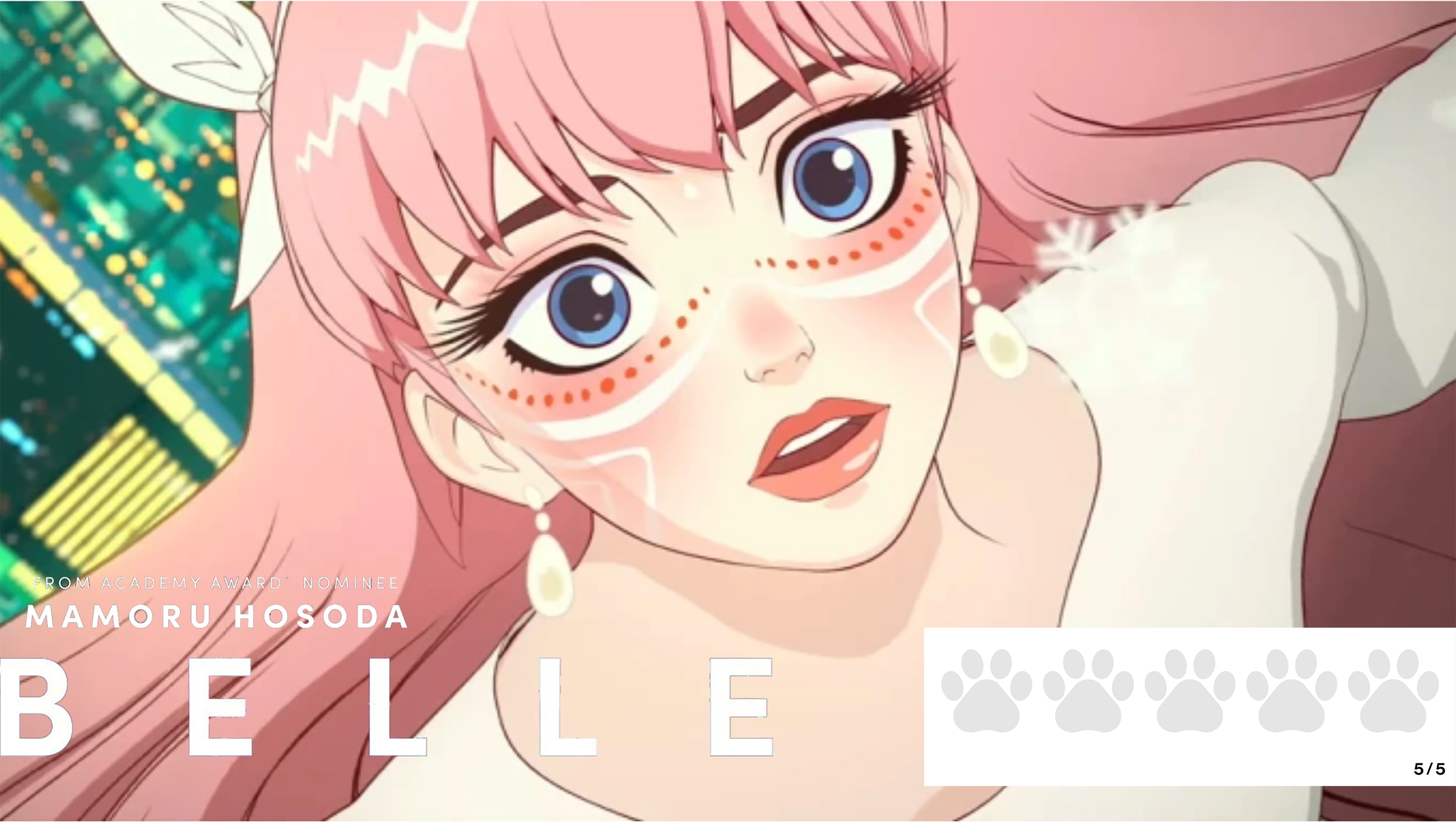Review | ‘Belle’ is a sublime melodrama for the digital age
Renowned director Mamoru Hosoda’s spectacular new animated feature presents one of the most thoughtful adaptations in years. Photo collage by DANIEL PEARSON, Photo Editor
When looking out over the swaths of thoughtless reboots and remakes that have dominated the media landscape for the last decade, Mamoru Hosoda’s new animated feature “Belle” — a modern retelling of “The Beauty and the Beast” — stands out like a lone star in an otherwise dark night sky.
Although it hasn’t been long since the 18th century French fairy tale made its last appearance on the big screen 一 Disney released a joyless retread of their own 1991 adaptation only five short years ago 一 “Belle” avoids redundancy by daring to reinvent its source material. The film serves as a brilliant reminder that even “tales as old as time” can feel innovative again when placed in the right hands.
“Belle” tells the story of Suzu, a mousy high school girl locked in the throes of loss, social anxiety and depression. We follow her through her incidental rise to fame in “U” 一 a utopian metaverse-esque virtual world that promises its users a chance to “start another life” 一 as pop star Belle.
After she crosses paths with the Beast, a user with a jet-black dragon avatar notorious in U for his brutal fighting techniques, the pair become closely intertwined, although not in the ways one might expect.
While that high-concept premise may bring to mind unpleasant memories of the stomach-churning image worship of films like “Ready Player One” and “Free Guy,” “Belle” thankfully has no interest in indulging the perverse fantasies of our capitalist overlords. Instead of serving as a digital incarnation of the tepid puddle of stagnating intellectual properties that we call “pop culture,” U is presented as a social space where anonymity allows for an unprecedented degree of self-expression and discourse flows freely.
The film’s oscillation between the superflat stylings of U’s abstract cityscapes and the impressionistic settings Suzu and her classmates inhabit can be likened to stepping out of a Murakami and into a Monet; it is nothing short of dazzling.
The stark juxtaposition of the total liberation of U and the complex social politics of Suzu’s real life serves as the fulcrum upon which the film operates, enabling the themes and symbols of “The Beauty and the Beast” to take on new meaning as Hosoda reinterprets them to explore questions of identity and the nature of human connection.
Belle’s integration into the multi-faceted Suzu provides the character with the much-needed depth her previous incarnations always lacked. The Beast’s monstrosity is no longer the result of a selfish act, but a selfless one. The decaying rose that served as a painful reminder of the Beast’s inevitable fate in the 1991 film thus blossoms into a sign of beautiful self-actualization.
Gaston is re-imagined as Justin, a self-appointed lawman who serves as a representation of the ever-encroaching forces of capitalism that seek to disrupt the harmony of U. While he retains his counterpart’s narcissistic urge to shape his surroundings to his liking, his motivations for wanting the Beast gone have completely shifted, now stemming from a desire to force U and its users to conform to his corporate sponsor’s narrow perception of how the cybernated society should function.
Perhaps the most striking contrast to its predecessors lies in the fact that Belle is never the Beast’s prisoner, permitting all of the frankly deserved claims of Stockholm syndrome that have continually nagged at every iteration of “The Beauty and the Beast” to finally dissipate.
The depth that these changes provide the time-honored narrative are a revelation, catapulting its archaic messages directly into the digital age and leaving both of Disney’s versions feeling antiquated by comparison. But beyond its role as an adaptation, “Belle” is by far one of the most emotionally compelling meditations on the intersections of humanity and technology since Spike Jonze’s “Her.”
I spent the entire third act in tears. It is melodrama of the highest caliber, and I cannot recommend it enough.
Now playing in theaters.


